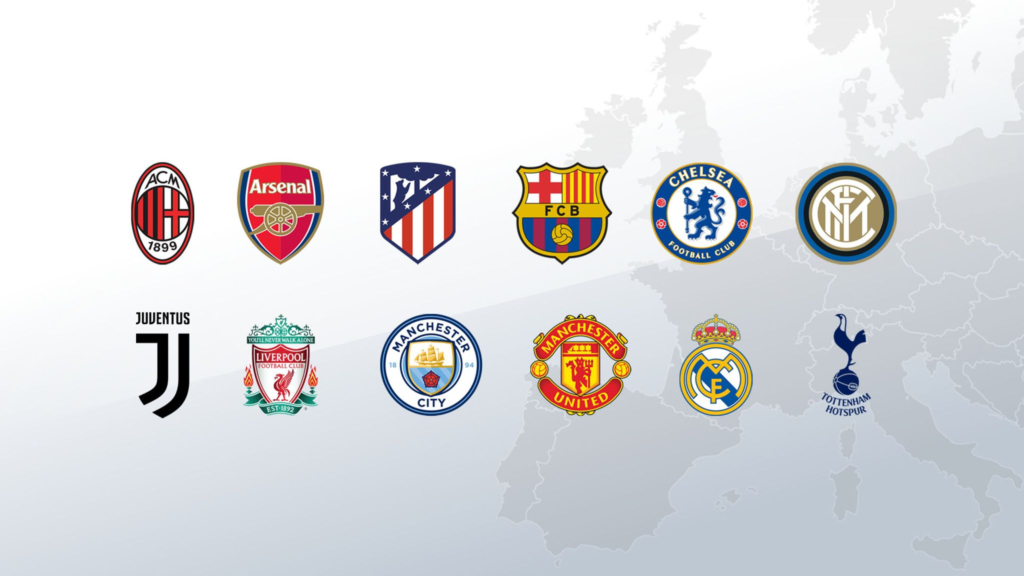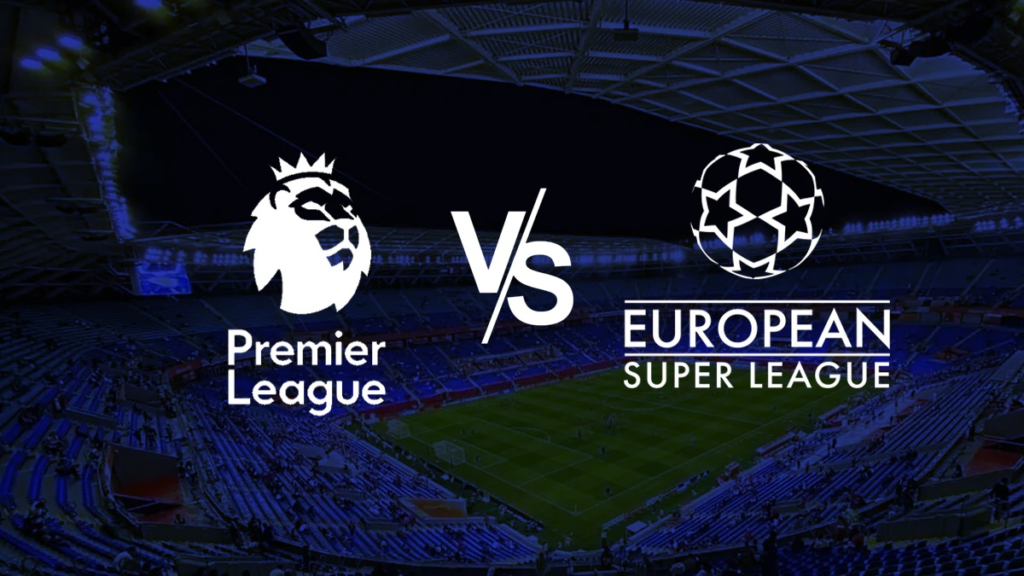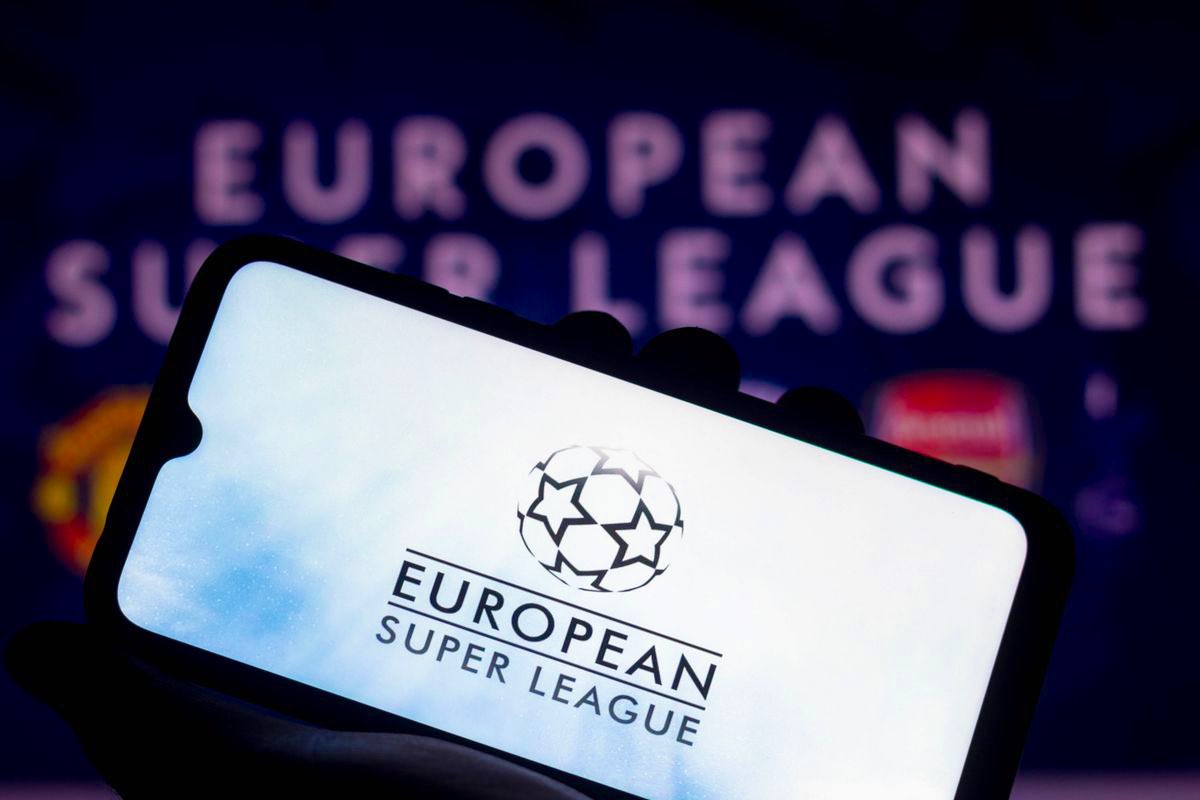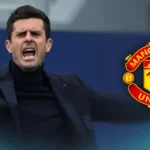In European soccer, Super League speculation is dominating the headlines nowadays. A new revolutionary tournament concept proposal was brought to attention in 2021 by a union of some elite clubs, framing a closed-format competition to challenge the UEFA monopoly. It sparked sheer controversy among fans and governing bodies alike.
UEFA warned the pioneer members of the Super League, threatening to ban their participation in recognized competitions such as the Champions League and Europa League, which compelled other clubs to withdraw their support. However, Andrea Agnelli, Joan Laporta, and Florentino Perez rebelled, taking the matter to the European Court of Justice.
What will be the format of Super League?
The conflict between UEFA and A22 Sports Management, which ignited the ideation of the Super League, brought a halt to the planning of the competitions. Despite the feud, the Super League garnered significant backing from the three elite clubs: Real Madrid, Juventus, and Barcelona.

Earlier, Florentino Perez had launched a verbal assault on UEFA to revive the concept before the European Court of Justice ruling. The European governing body faced a setback after the recent judgment from the ECJ fell in favor of the Super League.
ECJ statement: “There is no framework for the FIFA and UEFA rules ensuring that they are transparent, objective, non-discriminatory and proportionate.
“Similarly, the rules giving FIFA and UEFA exclusive control over the commercial exploitation of the rights related to those competitions are such as to restrict competition, given their importance for the media, consumers and television viewers in the European Union.”
#ECJ: The #FIFA and #UEFA rules on prior approval of interclub #football competitions, such as the Super League, are contrary to #EUlaw #EuropeanSuperleague 👉 https://t.co/ATb3CgbPxg pic.twitter.com/XCnLzwIKWb
— EU Court of Justice (@EUCourtPress) December 21, 2023
Meaningfully, the Super League can no longer be blocked under EU law, potentially leading to its formation in the upcoming years. This resulted in A22 Sports announcing the tournament’s revamped format to foster competitions across Europe following the judgment.
Reportedly, the ESL will feature 64 clubs competing in three different pyramid tiers: Star, Gold, and Blue. The Star and Gold Leagues will each cater to 16 teams, while the remaining Blue League will have 32 clubs as participants.
🚨🇪🇺 New proposed European competition by @A22Sports…
— EuroFoot (@eurofootcom) December 21, 2023
• 64 clubs across three leagues
• 3 leagues named Star, Gold & Blue
• Star league has 16 teams, so does Gold
• Blue league will have 32 clubs
All clubs will play in groups of 8, home and away, resulting in a… pic.twitter.com/cSHxe7Tf0D
Club allotment in the respective leagues will be based on merit, with no permanent members. The system will include relegation and promotion between the three league tiers. Each club will play 14 matches per season in a home-away format, and the knockouts will determine the subsequent promotion of the winners.

Moreover, the competition is designed not to disrupt domestic league calendars, eliminating midweek fixtures. There are perks for participating teams and fans, including free broadcasting of all matches and a fair distribution of revenue among the teams.
Bernd Reichart, the CEO of A22 Sports, stated, “Football is free. Free from the monopoly of UEFA, free to pursue the best ideas without fear of sanctions, and under our proposal, free viewing of all live matches.”
Teams that have reportedly confirmed Super League participation
Initially, the concept was introduced with 12 clubs in associations that included Arsenal, Chelsea, Liverpool, Manchester City, Manchester United, and Spurs, as well as Atletico Madrid, Milan, and Inter Milan. However, several clubs withdrew their support, leaving only Barcelona, Real Madrid, and Juventus.
🚨💣 BREAKING: PSV, Feyenoord, Benfica, Porto, the Italian clubs, Red Star, Anderlecht are some of the clubs who have ACCEPTED the new Super League. They see this as a MASSIVE opportunity to leave their financial problems away and be back to their best. @mundodeportivo pic.twitter.com/A569616Lrd
— Madrid Zone (@theMadridZone) December 21, 2023
Following the ECJ verdict, numerous clubs from the top European leagues have agreed to be part of this endeavor upon the reinstatement of the competition. Reportedly, Italian clubs, Dutch giants PSV and Feyenoord, along with Portuguese outfits Benfica and Porto, as well as Red Star and FC Anderlecht, have accepted the Super League and the 12 founding members.

However, the English club’s participation is still under massive doubt as the United Kingdom is no longer part of the European Union. The Premier League and Scottish FA might not align with the European Court of Justice judgment, potentially restricting their clubs from being part of the Super League.
What are your personal views on the Super League? Make sure to share them with us in the comments.







